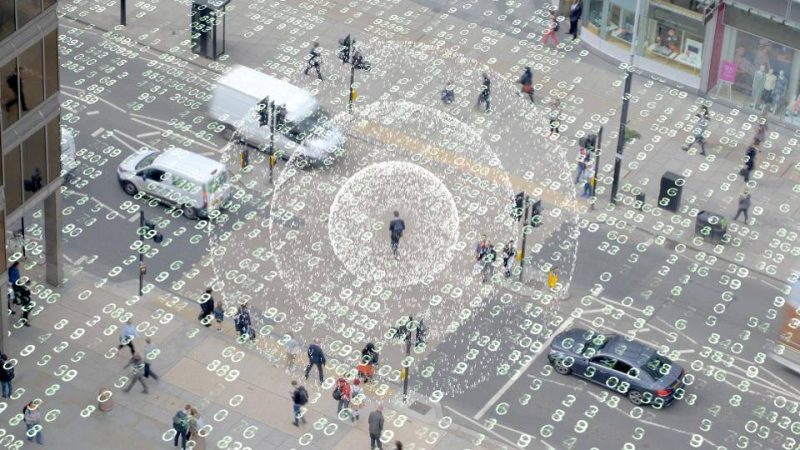Smart Cities, Urban Health Data And The Coronavirus Pandemic

Categories :
As the coronavirus pandemic expands worldwide, governments have had to take extreme measures to stop the transmission. As such, they have put entire cities and countries into lockdown. This directly affects urban economies on a multi-lateral level, including from social and economic standpoints. The need for collaboration is higher than ever -especially regarding health data-, between countries and cities worldwide. However, while effective protocols in regard to the sharing of health data is emphasised, urban data, on the other hand, specifically relating to urban health and safe city concepts, is still viewed from a nationalist perspective as solely benefiting a nation’s economy and its economic and political influence.
There are different channels that scientists around the world can use to share health data when a new outbreak is identified. These are mostly platforms put into place to tackle that specific issue. When the novel coronavirus COVID-19 was first identified by Chinese authorities, a Global Initiative on Sharing All Influenza Data (GISAID) platform was established and it was instrumental in the rapid sharing of information by the Chinese scientists regarding the emergence of the COVID-19 virus.
From an urban health perspective, this level of collaboration can be maximized as many cities around the world have high-tech technology infrastructure already operative. Smart cities, especially, have the technological tools and tech needed to leverage prevention and response in a pandemic scenario.
“As technological tools and laboratories around the world share data and collectively work to devise tools and cures, similar efforts should be considered between smart city professionals on how collaborative strategies could allow for the maximization of public safety on such and similar scenarios,” was said by Zaheer Allam and David S. Jones on the ‘On the Coronavirus (COVID-19) Outbreak and the Smart City Network: Universal Data Sharing Standards Coupled with Artificial Intelligence (AI) to Benefit Urban Health Monitoring and Management’ paper.
This is valid as smart cities host a rich array of technological products that can assist in early detection of outbreaks. In the case of the COVID-19 pandemic, screenings of temperature were being pursued at airports and in areas of mass convergence. To speed up the process, thermal cameras or Internet of Things (IoT) sensors were used.
“Virus outbreaks in recent years have shown that, in the urban realm, data, including health data, can be sourced from diverse places. Presently, in the case of Coronavirus (COVID-19) outbreak, data is being collected from airports through screening and monitoring, through the use of smart sensors installed in airport infrastructures and from personnel working in those air/seaports,” said the experts in the paper. In addition to these methods, other smart city data sources include the application of terminal tracking systems that are mostly emphasized in Safe City concepts, where, at the point of entry or departure, relevant data is collected and analyzed
While thermal cameras are not sufficient on their own for the detection of pandemics -like the case of the COVID-19, the integration of such products with artificial intelligence (AI) can provide added benefits. The fact that AI and IoT were used to accelerate the first response is a good example of how these early discussions could render efforts towards better management of similar situations in case of future potential outbreaks, and to improve the health fabric of cities generally.
Likewise, various authors state that urban health data sharing between smart cities can help prevention and response in case of pandemics. Kamel Boulos et al., for instance, supports that data from various technological products can help enrich health databases, provide more accurate, efficient, comprehensive and real-time information on outbreaks and their dispersal, thus aiding in the provision of better urban fabric risk management decisions.
These improvements in the healthcare sector can only be achieved if different smart city products are fashioned to support standardized protocols that would allow for seamless communication between themselves. Weber and Podnar Žarko suggest that IoT devices in use should support open protocols, and at the same time, the device provider should ensure that those fashioned uphold data integrity and safety during communication and transmission.
“Unfortunately,” the experts continued, “this has not been the case and, as Vermesan and Friess explain, most smart city products use proprietary solutions that are only understood by the service providers. This situation often creates unnecessary fragmentation of information rendering only a partial integrated view on the dynamics of the urban realm. With restricted knowledge on emergent trends, urban managers cannot effectively take decisions to contain outbreaks and adequately act without compromising the social and economic integrity of their city.”
Read More:
top 5 worst cities in new york
what is the smallest state in USA

Hernaldo Turrillo is a writer and author specialised in innovation, AI, DLT, SMEs, trading, investing and new trends in technology and business. He has been working for ztudium group since 2017. He is the editor of openbusinesscouncil.org, tradersdna.com, hedgethink.com, and writes regularly for intelligenthq.com, socialmediacouncil.eu. Hernaldo was born in Spain and finally settled in London, United Kingdom, after a few years of personal growth. Hernaldo finished his Journalism bachelor degree in the University of Seville, Spain, and began working as reporter in the newspaper, Europa Sur, writing about Politics and Society. He also worked as community manager and marketing advisor in Los Barrios, Spain. Innovation, technology, politics and economy are his main interests, with special focus on new trends and ethical projects. He enjoys finding himself getting lost in words, explaining what he understands from the world and helping others. Besides a journalist, he is also a thinker and proactive in digital transformation strategies. Knowledge and ideas have no limits.










